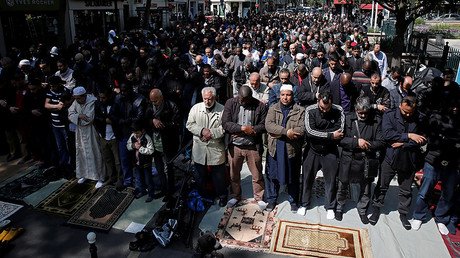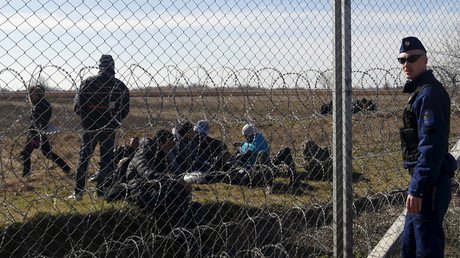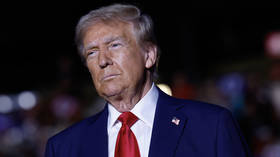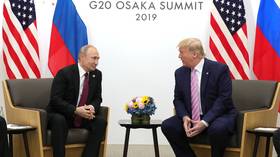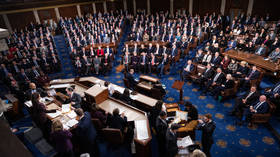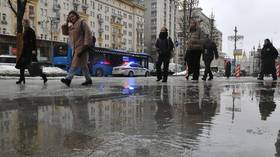Rise of the right: Austria’s election results & their implications for Europe
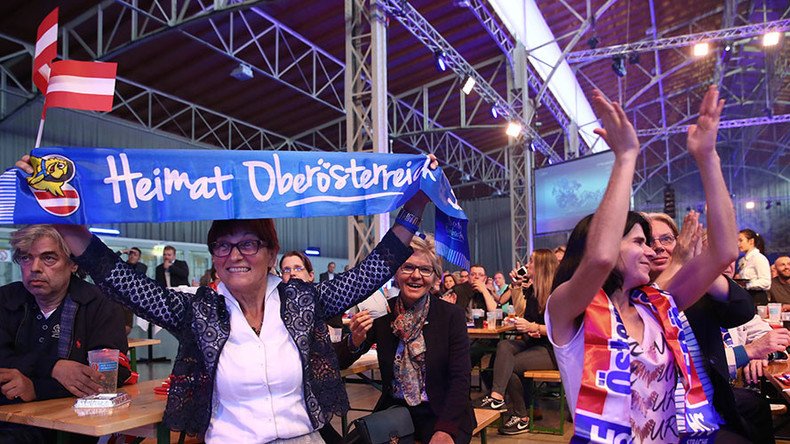
The resounding success of two anti-immigrant parties in the Austrian elections, with the right-wing Freedom Party (FPO) delivering one of the strongest performances in more than a decade, is a direct result of Europe’s open border policies, analysts say.
According to the results published by the Austrian interior ministry, Kurz’s conservative People’s Party (OVP) has taken a clear lead in the election with 31.5 percent of the vote, while the FPO almost snatched a victory from the Social Democrats (SPO) in a very close competition for the second place.
The Social Democrats received 26.9 percent support, while the FPO secured 26 percent of the vote. Ahead of the snap October 2017 parliamentary election, both Kurz and the FPO leading candidate Heinz-Christian Strache focused their campaigns on migration and the refugee issue.
Migration definitely dominated the entire election campaign ahead of the Austria’s October parliamentary vote, Dr. Barbara Kolm, the president of the Friedrich von Hayek Institute in Vienna and the Director of the Austrian Economics Center, told RT.
The massive inflow of refugees in 2015 and 2016 placed a heavy burden on the Austrian economy, social welfare system and the society itself.
“Those people, who contribute to the economy, who pay taxes and work hard, are the ones that actually lose,” Kolm explained. Austria had to change its policies or let itself be “harmonized to death.”
Christian Ebner, a deputy of Austria’s Chamber of Commerce says that the “whole political landscape in Austria shifted to the right” when in 2015 people understood that it’s a failed policy to let so many people, who are often undocumented, into the country.
READ MORE: ‘Forcing EU states to accept illegal migrants is ticking time bomb for European unity’
The FPO, which was always anti-immigrant, capitalized on the 2015 refugee crisis and received a significant public support over the recent years, with both OVP and SPO noticing it, he said. However, Kurz and his party eventually dared to take a “more conservative stance in terms of immigration” in an attempt to win back voters from the FPO while the Social Democrats only “slightly moved to the center.”
The liberal establishment policy and the necessity of the constant compromises between the former coalition partners – OVP and SPO – has led Austria into stagnation, Kolm explained.
Austrians saw “the lack of economic growth and stagnation of reforms,” she said. “We have not seen any reforms in the past couple of years with the big SPO-OVP coalition government” with the people “demanding a change.”
‘Austria turns to Hungary, Poland on tougher migration stance’
While Austrian society is pretty much united in its stance on the migration, Europe is deeply divided over the issue, analysts say.
There is already a deep rift in terms of stance on immigration between the establishment governments in Berlin and Paris, as well as the liberal EU administration in Brussels, and the conservative forces that rule over the eastern part of the union and the Visegrad Group in particular, Ebner believes.
As the public mood continues to move to the right across Europe, positions of the “establishment in Brussels” are “getting weaker.”
He particularly drew attention to the fact that a right-wing coalition that could be formed in Austria following the latest parliamentary elections might bring Austria, which traditionally “stuck with Germany and the Brussels establishment” in its policy, closer to the Visegrad Group, which now includes Poland, Hungary, the Czech Republic and Slovakia, which took an especially-tough stance on immigration and refused to fulfill their obligations under the refugee allocation quotas imposed by Brussels.
Shift of national governments across EU
The political trend, involving a shift to the right, affects not only Eastern Europe or Austria, but also countries that have traditionally been liberal strongholds in recent years, including Germany and France.
At the September parliamentary elections, the right-wing anti-immigrant Alternative for Germany (AfD) party enjoyed what was called a historic success while Angela Merkel’s Christian Democrats and the Social Democrats suffered their worst results in more than half a century.
In the French presidential elections in spring 2017, Marine le Pen, the head of the right-wing National Front party made it into the runoff beating the candidates from such major establishment parties as the Republicans and the Socialists.
The Dutch parliamentary election in March also showed a turn to the right wing as Geert Wilders’ far-right Party for Freedom (PVV) came second after the ruling People’s Party for Freedom and Democracy (VVD). Wilders’ PVV secured 20 seats in the House of Representatives, which is eight more seats than it had last time.
Next year, Italy may see the rise of yet another anti-establishment party, the Five Star Movement (M5S) led by Luigi Di Maio, one of the main rivals to former Prime Minister Matteo Renzi’s Democratic Party. The party vowed to challenge European Union austerity rules among other points of its program.
However, experts warn that Brussels could face much bigger problems than a shift in the national government across Europe if it fails to adapt to a changing situation and review its ultraliberal policies.
READ MORE: France to extend border checks due to ‘persistent’ terror threat
As more and more European countries re-introduce border controls citing security concerns and the inflow of illegal migrants, the Schengen agreement is de facto being gradually dismantled, with the EU “policies of open borders and the liberal migration policies” being the real reason behind that trend, Ebner told RT.
So now Brussels in fact stands before a simple but at the same time difficult choice, the analyst believes: either to keep its liberal asylum policies and to “see Schengen going down” or to shift to the right and “save Schengen.”
